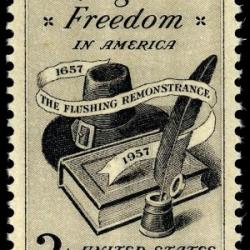Pascal-Emmanuel Gobry is not pleased with my forthright translation of his column at The Week. That’s understandable. After all, if he had wanted to be forthright, to own his words and his implications, and to make his nasty accusations directly and honestly, he would have done so himself.
Stripping away the pretense that he works so hard to craft is, in his eyes, simply rude. Do we imagine it’s easy for him to be this disingenuous? Why should he go to all the trouble of constructing a maze of indirection and insinuation if we’re just going to look past it to the substance of what he’s saying? Why should he take the time to confuse and conflate same-sex marriage and ENDA if we, as readers, refuse to follow along? And it’s just not fair for us to disregard his ground rules by distinguishing between civil rights and sectarian sacraments, or acknowledging the role of power, or — worst of all — quoting his own words and pointing out what they mean and how he used them.
And don’t we realize that he’s the voice of morality and that, therefore, the moral high ground is his birthright? That doesn’t change just because he says vicious things about others, or because he pursues an agenda that denies others their basic civil rights and human dignity.
For me to think otherwise is, Gobry says, clear evidence of a deficiency on my part.
Gobry seems most indignant that I raised an eyebrow at his description of the nebulous “circles” promoting a “movement” to coerce “Christians” into “backing down” on same-sex marriage. (Those are quote-quotes, not scare quotes.) He murkily describes this movement as arising from “many urban and progressive circles”:
In many urban and progressive circles, it’s beyond impolitic to oppose gay marriage. Indeed, there’s a movement underfoot to make opposition to same-sex marriage akin to support for racism. That is to say, anyone who expresses opposition to same-sex marriage would be ostracized, with many progressives hoping to employ a variety of social and governmental means of coercion to force gay-marriage opponents to the margins of society.
The word “urban” there is just … odd. That’s a perfectly good word and, quite often, a perfectly innocent one. It can denote and connote many things. Given the context though — both the narrow context of that paragraph and the larger context of an essay that warns of dangerous consequences from anti-discrimination efforts — I took it to be a euphemism for black.
That’s not necessarily a bad thing. Radio stations and record companies use the word “urban” as a rough synonym for black and that’s innocent enough. But then so does AM talk radio when it warns of “urban crime” as way of keeping its white listeners scared and angry, and that’s not innocent at all. “Urban,” like “inner-city,” is sometimes one of those euphemisms used by white people who seem to wish they could use some other choice euphemisms, and who seem to resent that they’re not allowed to say those words anymore — at least not when anybody urban might hear them.
I didn’t say this was what Gobry was doing with that word. I simply pointed out the context and noted that, whatever it was Gobry meant by “urban,” it was something he was characterizing as an exterior threat — a them over there who were up to something that might harm us over here.
But Gobry is apoplectic at the suggestion that he meant “urban” in this way. He is shocked — shocked! — that anyone might suggest that he, of all people, could possibly have intended any such thing. Why, just ask those who know him best, just acquaint yourself with the full body of his long history of saying all the right things. Some of his best columns … some of his best friends … that whole bit, etc. etc.
He also insists that he had no idea that the word “urban” had any such implications. He says what he really meant was to refer to “coastal urban areas of the United States.”

Ah, OK. My mistake there was in buying into Gobry’s intellectual pose. I didn’t imagine that someone as condescendingly erudite as he pretends to be could make such a simple error as writing “urban” when what he actually meant was “urbane.”
The difference there is just one letter, but it entails a whole different universe when it comes to the which group it was that Gobry meant to derogate, dismiss, discredit and delegitimize.
He meant those coastal elites — the latte-drinking, cosmopolitan, metropolitan, metrosexual, worldly, effete, pseudo-sophisticates who notoriously live in “coastal urban areas” rather than the red-blooded heartland.
Gotcha.
And Gobry is correct — there’s nothing particularly racist or racial about this characterization at all. It’s just a typical expression of conservative anti-intellectualism.
More specifically, it’s the form of expression that anti-intellectualism has to take when it’s being expressed by someone who is, himself, attempting to cultivate an aura of intellectual superiority, a la Robert George F. Will-iam Buckley. They can’t simply rail against pointy-headed academics and eggheads, so they convey the same idea by directing their antipathy toward coastal elites and latte-drinkers and “hipsters.”
In either case though — whether Gobry meant scary, alien urban-types or scary, alien urbane-types — his intent was the same. Rather than engaging or addressing the substance of their argument, Gobry sets out to discredit and delegitimize those making it. They are hipsters — foreign, Other, a threat, not like us, untrustworthy, etc.
If I were attempting to cultivate a Gobry-esque aura of intellectual superiority, I might refer to this as “an instance of the fallacy known as poisoning the well.” That’s a fancy term for framing opposing arguments as coming from a dubious, suspect source — like “urban and progressive circles” of “coastal urban areas” and hipster enclaves that want to shove their metrosexuality down our red-blooded American throats.
Gobry, alas, is as confused about the meaning of “poisoning the well” as he is about the difference between urban and urbane. He thinks it refers not to his use of dismissing, othering language, but to anyone noticing that he’s doing it.
Or maybe he’s not confused. Maybe he’s just again being, you know, sleazy.












